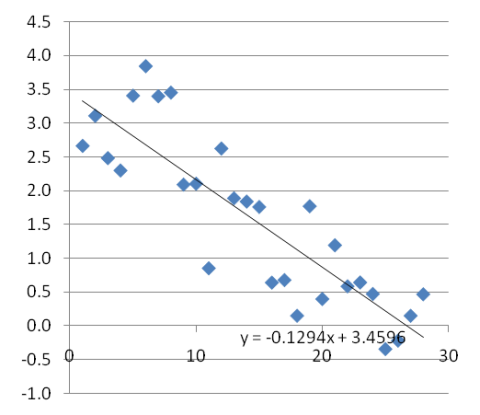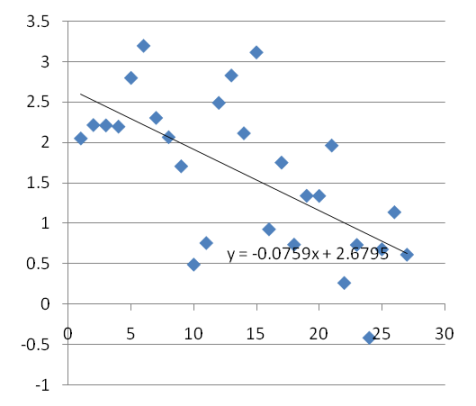Re: Sightings of references to the term "deflation"
Still churning the D-word out...
...the first four paragraphs of this Bloomberg item include "sustained deflation", "incipient deflationary threat", "risk of further deflation" and "the possibility of a deflation trap". Takes some talent to pack all that in to such a small space.
Originally posted by jk
View Post
...the first four paragraphs of this Bloomberg item include "sustained deflation", "incipient deflationary threat", "risk of further deflation" and "the possibility of a deflation trap". Takes some talent to pack all that in to such a small space.
Fed Should Expand Supply of Money, Bullard Says
Feb. 17 (Bloomberg) -- Federal Reserve Bank of St. Louis President James Bullard said the U.S. faces a risk of “sustained deflation” and called on the central bank to avert a decline in prices by expanding the money supply.
The prospect of deflation is a “significant downside risk” and may increase home foreclosures, Bullard said in a speech today in New York. Adopting a target “rapid” growth rate for the monetary base, which includes money in circulation and banks’ reserve deposits with the Fed, should “head off any incipient deflationary threat,” he said...
...“By expanding the monetary base at an appropriate rate, the FOMC can signal that it intends to avoid the risk of further deflation and the possibility of a deflation trap,” Bullard said in prepared remarks to the New York Association for Business Economics...
Feb. 17 (Bloomberg) -- Federal Reserve Bank of St. Louis President James Bullard said the U.S. faces a risk of “sustained deflation” and called on the central bank to avert a decline in prices by expanding the money supply.
The prospect of deflation is a “significant downside risk” and may increase home foreclosures, Bullard said in a speech today in New York. Adopting a target “rapid” growth rate for the monetary base, which includes money in circulation and banks’ reserve deposits with the Fed, should “head off any incipient deflationary threat,” he said...
...“By expanding the monetary base at an appropriate rate, the FOMC can signal that it intends to avoid the risk of further deflation and the possibility of a deflation trap,” Bullard said in prepared remarks to the New York Association for Business Economics...




Comment